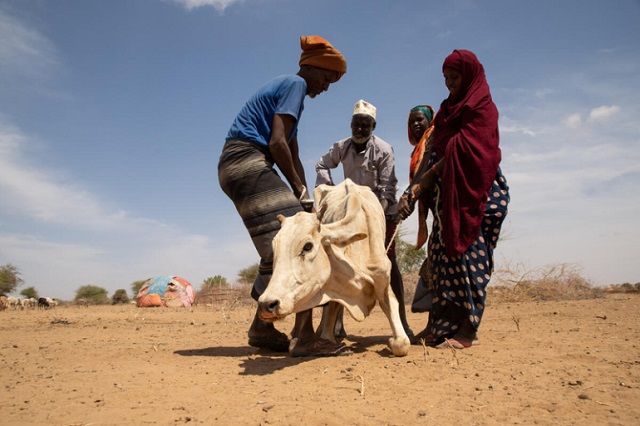
Nairobi, Kenya | Xinhua | The World Bank said it has provided 385 million U.S. dollars in International Development Association (IDA) financing to Horn of Africa countries to tap groundwater potential and boost climate resilience.
The World Bank said in a statement issued on Wednesday evening that the Horn of Africa Ground Water for Resilience Project (HoAGWRP), a new multi-phased project, will boost the region’s capacity to adapt to the impacts of climate change.
“World Bank experience shows that gaining knowledge on aquifers, building trust around shared groundwater resources, and jointly developing groundwater management mechanisms among countries involve a long-term trajectory that needs to be approached gradually,” Boutheina Guermazi, World Bank Director for Regional Integration for Sub-Saharan Africa, the Middle East, and Northern Africa said.
The lender said the project fosters cooperation with Ethiopia, Kenya, Somalia, and the Intergovernmental Authority on Development (IGAD), who will work together to tap into the region’s largely untapped groundwater resources to cope with and adapt to drought and other climate stressors impacting their vulnerable borderlands.
Djibouti and South Sudan have also expressed interest in joining the program in subsequent phases, it said.
The World Bank said the first phase of the project is estimated to reach 3.3 million direct beneficiaries, of whom at least 50 percent are women, through interventions designed to increase access to water supply and reduce vulnerability to climate change impacts.
The project will also contribute to improving food security in a region undergoing a severe drought.
Daher Elmi Housssein, IGAD’s Director of Agriculture and Environment Division, said groundwater constitutes a natural buffer against climate variability and change, as it is available in times of drought when other surface or subsurface resources are scarce.
“The potential is vast, and we are committed to building inclusive community-level use of this shared resource, along with better information, infrastructure, and institutions to ensure our groundwater is sustainably managed for generations to come,” Elmi said.
The lender said the project will establish the building blocks that will enable the medium and long-term agenda of improving transboundary water management in the Horn of Africa.
IGAD, a seven-member East African bloc that groups Djibouti, Ethiopia, Kenya, Somalia, South Sudan, Sudan, and Uganda, will play a central role as the main promoter and facilitator of the long-term regional strategy, including data and information sharing.
*****
Xinhua
 The Independent Uganda: You get the Truth we Pay the Price
The Independent Uganda: You get the Truth we Pay the Price



